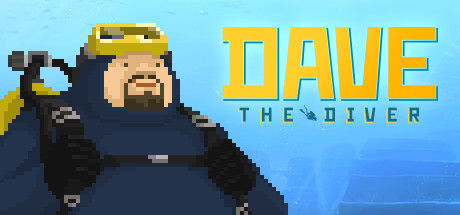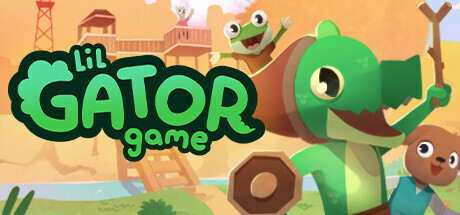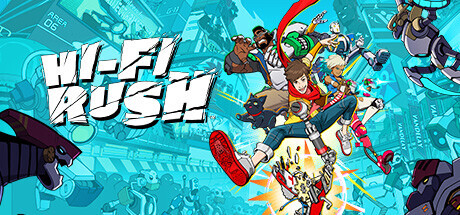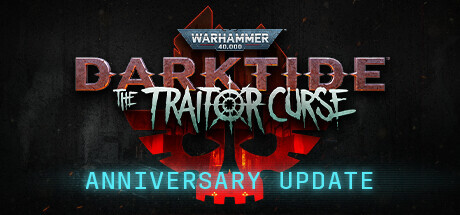2023 Steam Awards Roundup
By Dinoracha 0 Comments
Note: I passed on the VR and Stream Deck nominations since I don’t have either. Also, my choices are based solely on games I’ve played this year, so if some ‘obvious’ choices are missing, chances are I didn’t play them.
Sit Back and Relax Award

Although I haven’t finished the game yet, Dave the Diver (so far) has taken the high road when it comes to a diving game that isn’t trying to scare the absolute Jimminy Christmas out of you. Sure, the deeper waters can be eerie, but it’s executed with splendour rather than sneaking in jumpscares.
Excluding the time-sensitive cooking challenges and bosses, going day to day pursuing particular goals or just coasting around gathering fish and materials makes for a chill gameplay loop, unlocking features or rewards at a steady clip for some of those good good brain responses. The silly charm, writing and cutscenes that occasionally go harder than they ever should makes Dive the Diver an easy-going experience to unwind with.
Outstanding Story Rich Game Award

Admittedly, I haven’t played much by way of narrative-driven games this year, but I’d be surprised if any of them could top Lil Gator Game. Sure, you could argue it’s not the most story-rich game out there, but the story it tells about familial drifting, the drive to do something good and the importance of play is incredibly relatable, even if you were an only child. It’s a simple story, but it’s told through so much earnest charm and silly comedy that it hardly matters.
Best Soundtrack Award

Dang, y’all. Hi-Fi Rush sounds preeetty good - And I don’t just mean the licensed soundtrack. Hi-Fi Rush incorporating its soundtrack not only to fit with the mechanics of the rhythm action gameplay, but also the feedback and visual effects to make it feel not like you’re playing with music in the background, but playing to the music.
Not only are the licensed song choices top-notch picks, but the streamer mode music from The Glass Pyramids has no right being so utterly fantastic, even being better than some of the licensed tracks in at least two instances. The Glass Pyramids may be evoking the licensed songs to hit similar vibes in rhythm and tone, but their performance helps keep them from sounding like cheap knock-off covers, which could’ve been an easy trap to fall into.
Best Game You Suck At Award

Thronefall is such a small, simple game to pick up that I end up underestimating every new round I play - That is, until I find my defences crumbling around me and my king having fallen off his horse for the umpteenth time. It’s still early goings in the campaign for me, but Thronefall provides just enough variety for a small game that people who like perfecting a strategy and/or score-chasing can get a lot of time out of it.
There’s a fine line to balance between amassing defences versus strengthening the economy versus upgrades, and leaning too far in any direction can often spell disaster. Lots of fun with a surprising level of depth backing it up.
Most Innovative Gameplay Award

Much like the award for Lil Gator Game, I didn’t get to play many games this year that did much ‘different’ compared to the rest, but that won’t subtract from giving this one to Viewfinder. Using pictures and perspective may not be the newest idea on the block, but Viewfinder executes these concepts in ways that made my brain hurt but also made my brain feel like the strongest part of my body once I figured a puzzle out. The game introduces and combines gimmicks modularly, making learning, understanding and putting your knowledge into practice a necessary and rewarding experience.
Outstanding Visual Style Award

Retro callback games aren’t supposed to look this good. Like, what? Sea of Stars is meant to evoke RPGs of yore from the SNES and Genesis days, so how does it look so good?!
Facetious gags aside, Sea of Stars was the most striking game I played this year in terms of visuals, with pixel/sprite (I have a hard time telling the difference) work that’s clear, crisp, animated wonderfully and with lighting that caught me off-guard from just how - Well, just how good it looks, with shading and reflections that must have been a feat to pull off. It’s like their art director read comments about how ‘retro games look bad’ and decided to spite them in the most productive way possible.
Better With Friends Award

Darktide had a rocky start, but after the recent character/talent tree rework, the game is in a much better, stable and enjoyable place - Doubly so when rolling with people you know. I didn’t nominate Darktide for this award for it ‘just being a co-op game’, but also because the way you can build your characters’ talent trees and loadouts can lend itself to synergizing gameplay that becomes all the more powerful when communicating and organizing with your buddies. It makes the power trip of mowing through hordes of enemies more gratifying with people you know than playing with random people, since the latter are allergic to text or voice chat most of the time (those on open mic doing bong rips notwithstanding).
Labour of Love Award

It would’ve been straightforward for Hello Games to cash out and head off into the sunset after the initial release of No Man’s Sky, being yet another instance of development hell and external meddling leading to a busted, half-promised and poorly released game - But they didn’t!
For multiple years, although the gaps between updates are lengthy, said updates have been moderate to substantial in terms of content, ways to play, mechanical tweaks and improving performance. I know it’s pretentious of me to use the word, but there’s a certain kind of pride I have towards Hello Games for getting over that initial hump and overwhelming negative feedback from its release, the first few updates being dismissed to now having people actively looking forward to what’s coming next.
Game of the Year Award

Ok, so like, you can’t really be surprised by this pick, can you? If you’ve known me for any amount of time this year, you knew - You knew - Hi-Fi Rush was going to take the top spot. We’ve covered the banger soundtrack in its licensed and alternate music, but what about the other components? Like the wonderful voice-acting or the funny script with an eclectic cast backing it? What about the combat that wants you to mix things up to keep your combos and score fresh, with feedback that gets all the more hype the better you do? Ooh, what about the visuals and execution that give the game a ‘Saturday morning anime’ vibe with plenty of color, expressive characters and visuals and a story that is the manifestation of the meme ‘the friends we made along the way’?
It’s almost maddening how much joy I felt and the fun I had during my time with Hi-Fi Rush. It made me laugh, it got me teary-eyed, it made me feel and had my heart grow a size bigger - I’m hard-pressed to think of a game that made me so unequivocally happy from start to finish and hoping that it sees either an expansion or sequel down the road - All from a game that effectively came out of nowhere near the start of the year! Game of the year for me, hands down, mic drop, etc.

Log in to comment